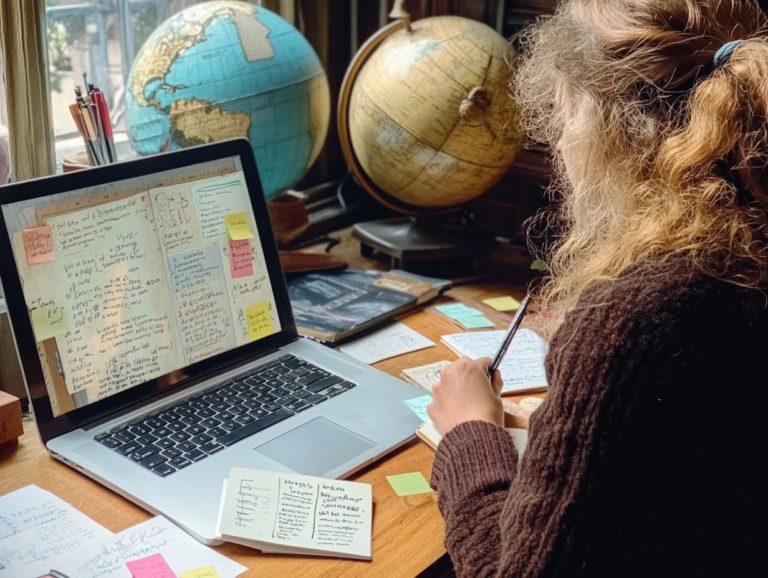The Role of Curiosity in Cultural Adjustment
Cultural adjustment can be quite the adventure, brimming with both excitement and uncertainty. Grasping the stages of this journey is crucial, but what truly facilitates a smoother transition is embracing your curiosity.
This article reveals how curiosity can make adapting to a new culture easier and more enjoyable. You’ll discover practical tips and strategies to nurture this essential trait while uncovering common barriers that may stifle your curiosity. Learn how fostering it can lead to meaningful connections and personal growth in unfamiliar environments.
Dive in now to discover how curiosity can dramatically transform your cultural journey!
Contents
- Key Takeaways:
- Understanding Cultural Adjustment
- The Importance of Curiosity
- Cultural Curiosity: Tips and Strategies
- Barriers to Curiosity in Cultural Adjustment
- The Role of Curiosity in Building Connections
- Cultural Curiosity and Personal Growth
- Frequently Asked Questions
- 1. What is the role of curiosity in cultural adjustment?
- 2. How can curiosity help in overcoming cultural barriers?
- 3. Can curiosity lead to cultural sensitivity?
- 4. What can hinder curiosity in cultural adjustment?
- 5. How can we cultivate curiosity in cultural adjustment?
- 6. Is curiosity a necessary trait for successful cultural adjustment?
Key Takeaways:
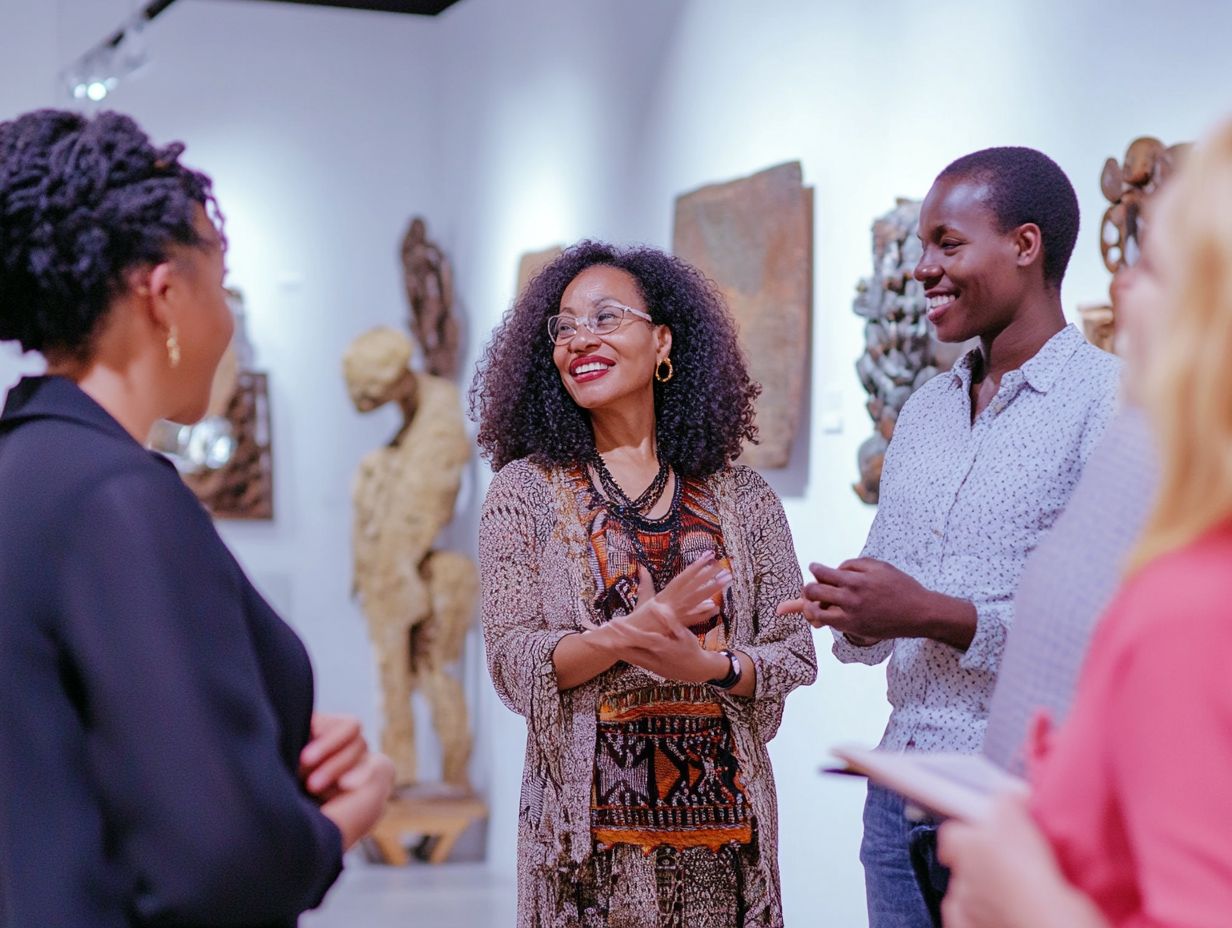
- Cultural adjustment is a challenging process of adapting to a new culture.
- Curiosity is a crucial tool in navigating and thriving in a new culture.
- Strategies for fostering cultural curiosity can enhance personal growth and facilitate building relationships in a new culture.
Understanding Cultural Adjustment
Cultural adjustment describes the intricate process you undertake when adapting to a new cultural environment, a journey especially significant for immigrants and expatriates relocating to places like New Zealand.
This experience requires you to navigate cultural norms and societal expectations that can differ dramatically from your home culture. This often leads to various stages of adaptation and the feeling of confusion or anxiety when adjusting to a new culture, known as culture shock.
Grasping this process is essential for fostering effective communication and integration within both the workplace and broader society. It profoundly shapes your relationships with others and influences your personal growth.
Definition and Stages of Cultural Adjustment
Cultural adjustment refers to the psychological and behavioral transformations you undergo as you adapt to a new cultural environment. This process is particularly crucial for immigrants navigating unfamiliar societal norms and values.
Initially, you may find yourself in the honeymoon phase, filled with excitement and curiosity that colors your experience positively. However, this initial joy can quickly transition into culture shock, marked by feelings of frustration and confusion as the realities of your new surroundings set in.
As you move into the adjustment stage, you’ll work to modify your behavior and communication styles, gradually carving out your niche within the community. Mastery comes when you successfully integrate and thrive, resulting in heightened confidence and more effective interactions in this diverse cultural landscape.
Understanding these stages is essential for enhancing communication and fostering deeper connections in your new environment.
The Importance of Curiosity
Curiosity serves as a crucial element in cultural adjustment, acting as a powerful catalyst for personal growth and effective communication during your transition into a new culture, such as that of New Zealand. Understanding the science behind cultural adjustment and resilience can further enhance this process.
By nurturing a strong sense of curiosity, you can delve deeper into cultural norms and societal values, fostering a richer understanding and enhancing your relationships with others.
This intrinsic desire to learn about different cultures not only helps you navigate the challenges of culture shock but also enriches your experiences through meaningful cultural engagement and valuable insights.
How Curiosity Can Help in Cultural Adjustment
Curiosity can elevate your cultural adjustment, creating an atmosphere of open-mindedness and understanding, which are essential elements when you’re adapting to a new cultural landscape. Exploring the role of social media in cultural adjustment can also enhance this process.
When you embrace curiosity, you naturally develop a keen interest in the values, traditions, and norms of the culture you re encountering. This eagerness to ask questions like inquiring about local customs or the significance of particular rituals not only enriches your knowledge but also showcases your respect for those around you.
For example, when a traveler takes the initiative to ask locals about their favorite traditional dishes, they often find themselves invited to community meals or celebrations, leading to deeper connections. Such interactions foster friendships and facilitate smoother communication, enabling you to navigate new environments with confidence and grace.
Cultural Curiosity: Tips and Strategies
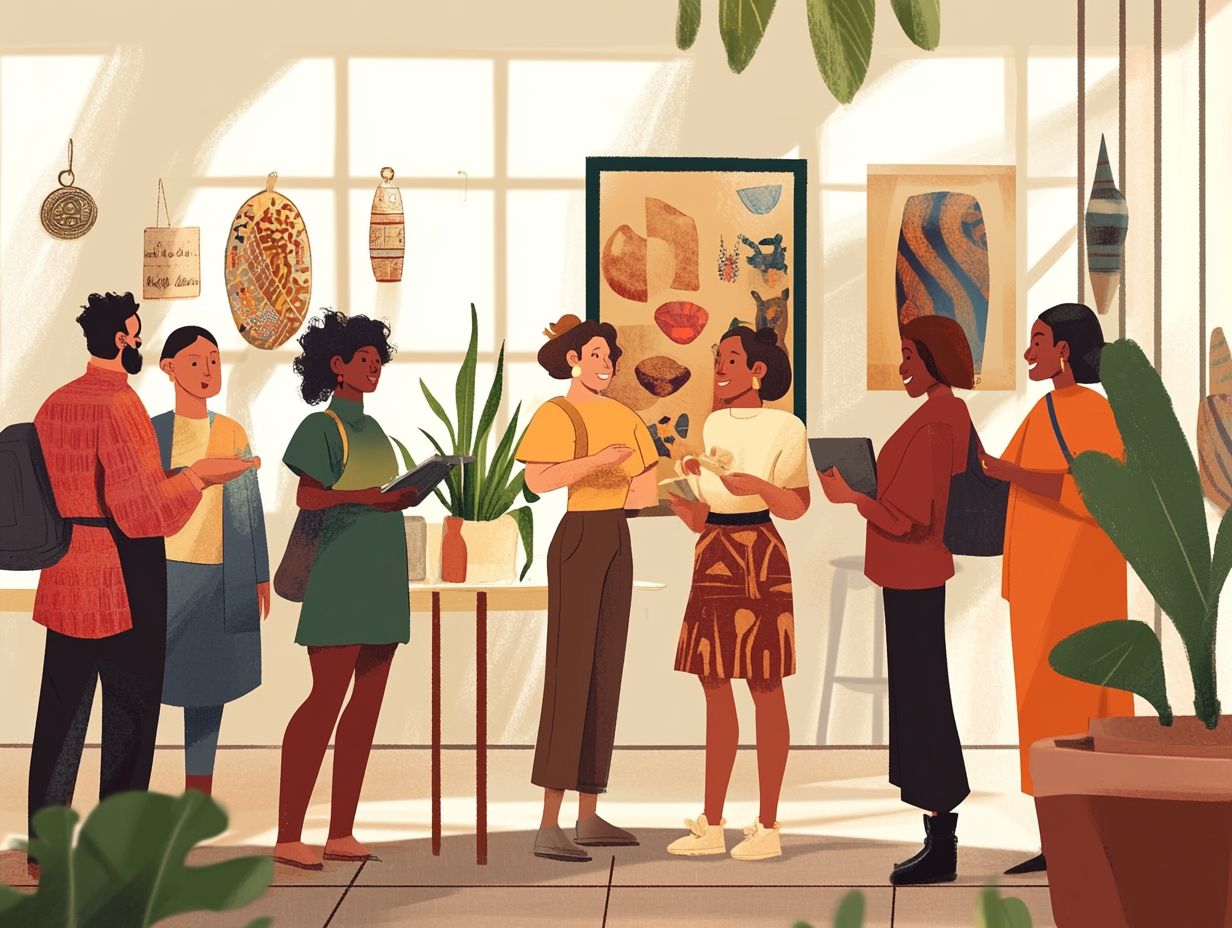
Cultivating cultural curiosity is crucial for anyone aiming to flourish in a new environment, especially for those relocating to culturally diverse places like New Zealand.
By embracing curiosity, you can enhance your cultural experiences and forge personal connections that lead to meaningful interactions. This proactive mindset deepens your understanding of cultural norms and helps you navigate biases and stereotypes linked to unfamiliar cultures.
Ways to Cultivate Curiosity in a New Culture
There are many ways to cultivate curiosity in a new culture, allowing you to engage deeply with the cultural landscape and understand diverse societal norms.
Actively seek out fresh experiences such as savoring local cuisines or participating in regional festivals to gain firsthand insight into the traditions and values that shape a community. Ask locals personal questions to foster meaningful connections and unlock stories that might remain hidden.
Jump into cultural traditions today! Whether it s learning a traditional dance or attending a family gathering, these experiences can enrich your appreciation for the nuances of a different way of life. Embracing these methods allows you to express your curiosity and sets the stage for personal growth and a deeper understanding of the rich tapestry of human experience.
Barriers to Curiosity in Cultural Adjustment
Curiosity is essential for adapting to new cultures, yet various barriers can prevent this natural inclination, hindering your engagement with new cultures.
Ingrained biases, stereotypes, and the fear of the unknown can all prevent you from asking personal questions or exploring cultural values. Understanding these barriers boosts your cultural insight, especially in diverse settings like New Zealand.
Factors that Can Hinder Curiosity
Several factors can dampen your curiosity during the cultural adjustment process, making it difficult to communicate effectively and grasp new cultural norms.
Preconceived notions about different societies can blur your perspective, leading to misinterpretations that stifle open dialogue. Cultural shock feeling overwhelmed by unfamiliar practices and social cues often acts as a barrier. Past negative experiences, such as discrimination or misunderstandings, can heighten your reluctance to engage.
A lack of exposure to diverse cultures might keep stereotypes alive, discouraging you from pursuing deeper connections. Recognizing these influences is crucial, as nurturing genuine curiosity can shatter those walls and pave the way for more meaningful interactions and mutual appreciation.
The Role of Curiosity in Building Connections
Curiosity helps you adapt to new cultures effectively, enriching interpersonal relationships and deepening your understanding of diverse backgrounds. By embracing your curiosity, you can ask thoughtful, personal questions and engage with various community groups.
This approach uncovers cultural insights that enhance your experiences, particularly in vibrant places like New Zealand. Such proactive engagement bridges cultural divides and fosters a profound sense of belonging in a multicultural landscape.
How Curiosity Can Facilitate Relationships in a New Culture
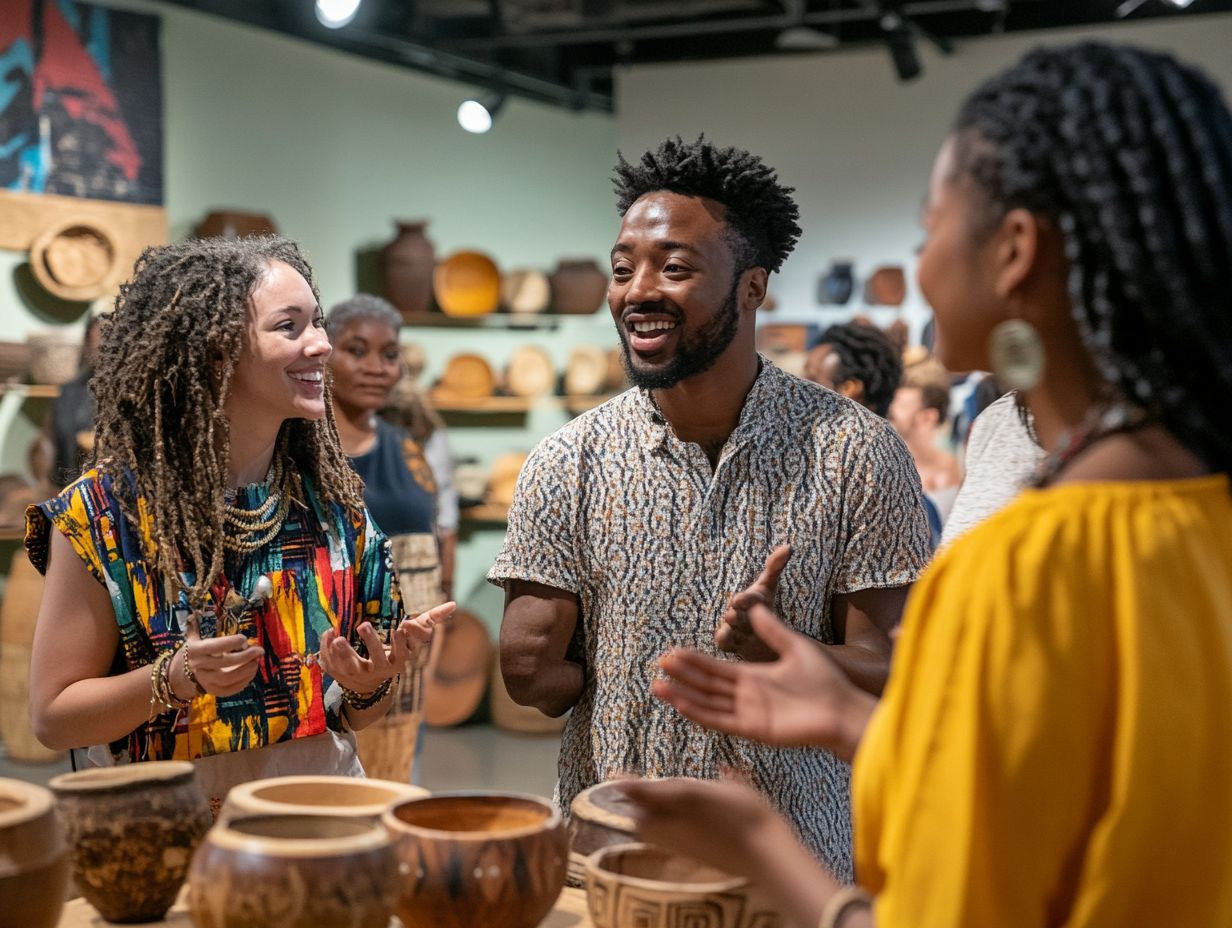
Curiosity is an amazing way to connect with others! It fosters relationships within a new culture, encouraging open dialogue and deepening understanding between individuals.
When you express genuine interest in someone s background and experiences, you create an opportunity for meaningful conversations that can bridge cultural divides. For instance, when a traveler inquires about a local’s traditions or favorite dishes, they not only discover new customs but also show respect and appreciation.
This exchange can lead to shared stories, laughter, and a foundation of mutual trust. In these moments, curiosity transforms a simple acquaintance into a new friendship, making both parties feel valued and heard.
Engaging in dialogue driven by curiosity allows for authentic connections to flourish, enhancing personal bonds and nurturing a shared appreciation of culture.
Cultural Curiosity and Personal Growth
Cultural curiosity plays a vital role in your personal growth. It enables you to broaden your horizons and cultivate a deeper understanding of the world around you.
In culturally rich environments like New Zealand, embracing this curiosity can lead to transformative experiences and insights, ultimately enriching your cultural identity and enhancing your interpersonal relationships.
How Curiosity Can Lead to Personal Development in a New Culture
Curiosity can truly drive your personal development when immersing yourself in a new culture. It encourages you to actively seek out learning opportunities and engage with diverse perspectives.
This natural desire leads you to explore unfamiliar customs and traditions, enhancing your people skills through meaningful interactions.
As you navigate these new environments, you cultivate emotional intelligence, the ability to understand and manage your own feelings and those of others. This adaptability becomes crucial, enabling you to adjust your responses according to social contexts and fostering deeper connections.
Embracing curiosity transforms your individual experiences and enriches relationships between different cultures, laying the foundation for a more inclusive and understanding world.
Frequently Asked Questions
1. What is the role of curiosity in cultural adjustment?
Curiosity plays a crucial role in cultural adjustment by promoting understanding and acceptance of new cultures. It drives us to learn more about unfamiliar cultures and customs, including the role of language in cultural adjustment, helping us adapt and integrate more effectively.
2. How can curiosity help in overcoming cultural barriers?
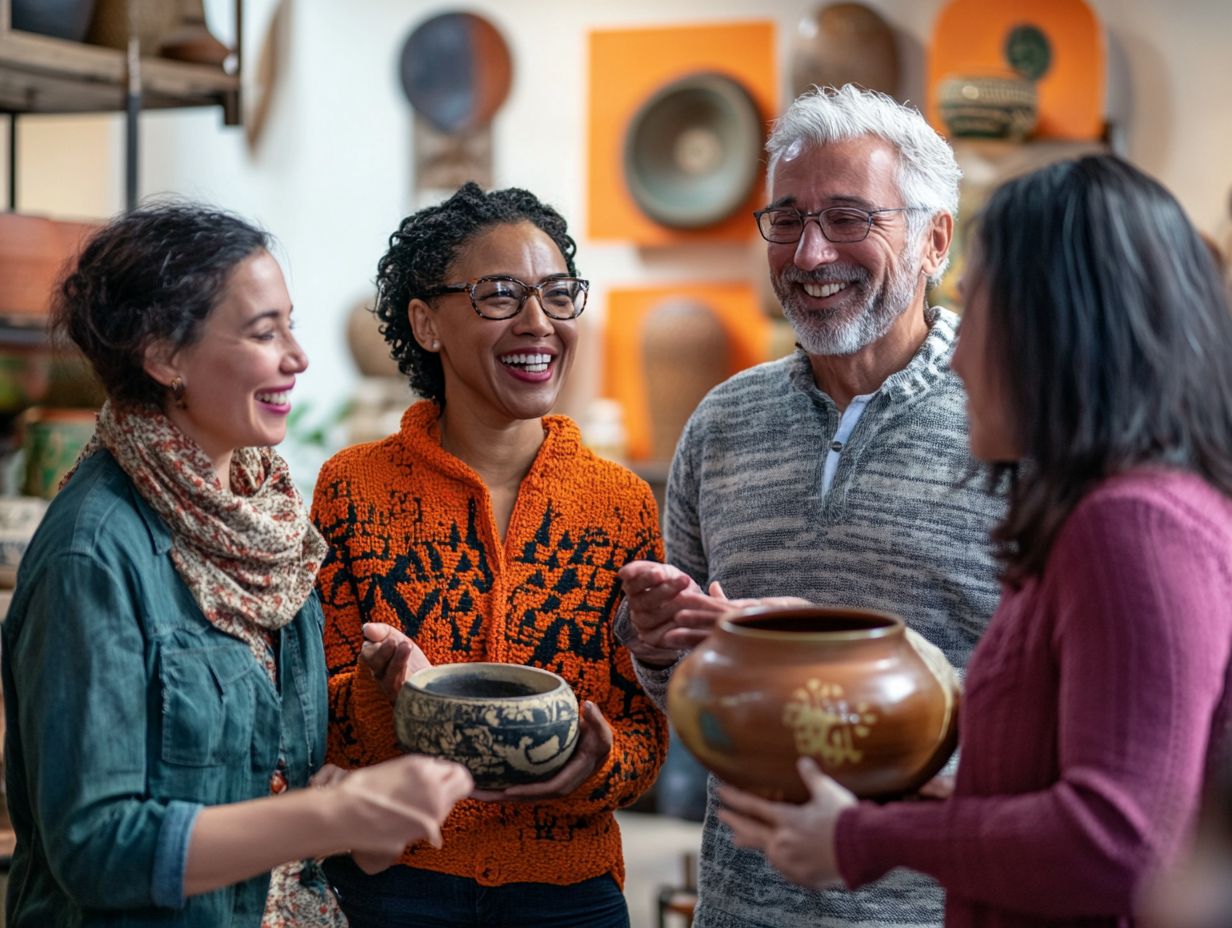
By being curious, we can break down cultural barriers and bridge differences by asking questions and seeking to understand rather than judge. It allows us to see beyond stereotypes and appreciate the diversity within a culture.
3. Can curiosity lead to cultural sensitivity?
Yes, curiosity can lead to cultural sensitivity as it encourages us to learn about different perspectives and be open-minded. It helps us recognize and respect cultural differences, leading to better communication and relationships.
4. What can hinder curiosity in cultural adjustment?
Fear and close-mindedness can hinder curiosity in cultural adjustment. When we are afraid of the unknown or are set in our ways, we may resist learning about new cultures and miss out on valuable opportunities for growth and understanding.
5. How can we cultivate curiosity in cultural adjustment?
We can cultivate curiosity in cultural adjustment by being open to new experiences, asking questions, and actively seeking to learn about different cultures. It also helps to have a positive and non-judgmental attitude towards cultural differences.
6. Is curiosity a necessary trait for successful cultural adjustment?
While it is not the only factor, curiosity is indeed a necessary trait for successful cultural adjustment. It allows us to approach new cultures with an open and adaptive mindset, making it easier to navigate and adapt to unfamiliar environments.
What are you curious about in your cultural journey? Don t miss out on the chance to explore and connect!


